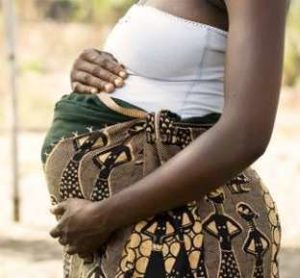Centre working to improve maternal care outcomes in Ghana
 Maternal care is an essential part of the overall well-being, health status of any country and affects development outcomes.
Maternal care is an essential part of the overall well-being, health status of any country and affects development outcomes.
According to a 2015 United Nations Development Programme report on the Millennium Development Goals (MDGs), Ghana ‘s institutional maternal mortality ratio fell from 216 per every 100,000 live births in 1990 to 144 in 2014.
The figure show a 7.2 per cent drop in 24 years. But the figure in that year – 144 per 1000,000 live births, was above the MDGs target of 54 per 100,000 live births.
In 2017, the maternal mortality ratio for Ghana was 308 deaths per 100,000 live births. That was a gradual fall from 398 deaths per 100,000 live births in 2003.
In order to achieve safe motherhood and improve on maternal care, the World Health Organisation recommends a minimum of eight antenatal care (ANC) contacts for pregnant women.
However, many women are not able to attend all the required number of ANC visits due to many socio-economic factors and this has an impact on safe motherhood for many women.
To improve on the fortunes of pregnant women therefore, the Navrongo Health Research Centre (NHRC) in the Upper East region is undertaking a social science research to test an intervention that focuses on encouraging pregnant women and their support networks to seek modern maternal care.
According to Madam Maria Anyorikeya, of the Social Science Department of the NHRC, in Ghana, although attendance of at least one ANC visit is nearly universal, however, the attendance of the recommended number of visits remains below target.
She said though it is the woman who bears the pregnancy, many other decisions to seek health services are often made by other stakeholders.
She was making a presentation on a maternal care intervention project taking place at the centre. This was during a visit by a group of journalists to the NHRC, who are on a field visit to see at first hand some of the research activities of the centre.
The pilot study on maternal care is looking at using the village setting and community involvement to encourage women to pursue maternal care and modern interventions.
Madam Anyorikeya touched on the study design, saying the intervention involves three cross-randomized interventions made up of community education and durbars, phone calls to reinforce key messages and the monitoring of pregnancy women and home visits to check on them and prepare birth plans together with husbands and mothers-in-law.
The study is set in a catchment area made up of five clinics and it focuses on only adult women of fertile age 18 or older and pregnant women in the first and second trimester.
The NHRC is also undertaking a multi-centre collaborative project to address knowledge gaps in community engagement strategies through investigating the role of community engagement in genomic research and biobanking in sub-Saharan Africa. This study is a collaborative research project across six African countries involving Ghana, Nigeria, South Africa, The Gambia, Tanzania and Kenya. The aim is to identify best practices for feeding back genetic findings and results to individuals, groups and communities. The project is still ongoing.
In a related development, Pe Denis Aneakwoa Balinia Adda Asagpaare11, Paramount Chief of the Navrongo Traditional area, has expressed satisfaction and appreciation for the enormous support that the NHRC has given to the people of the area over the years.
He said the people have benefitted from the NHRC in terms of health outcomes, including other socio-economic benefits.
The chief said these when interacting with the journalists and officials from the NHRC and the African Media and Malaria Research Network during a courtesy call on him at his palace.
By Eunice Menka
Copyright ©2021 by NewsBridge Africa
All rights reserved. This article or any portion thereof may not be reproduced or used in any manner whatsoever without the express written permission of the publisher except for the use of brief quotations in reviews.
